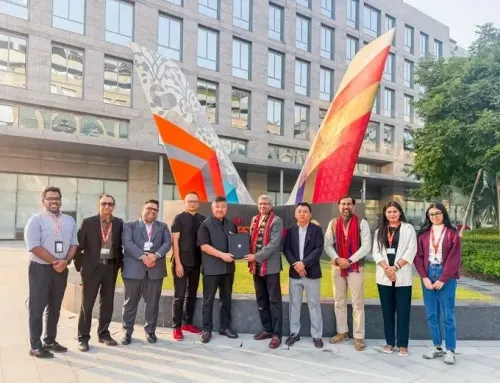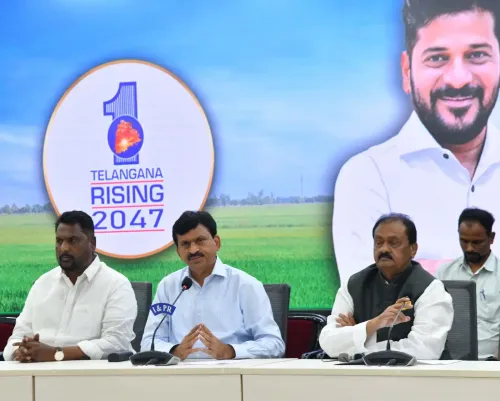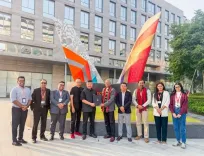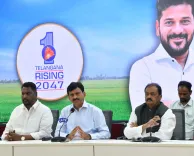Will PM Modi Fulfill His Promise to Eradicate Macaulay's Legacy of Mental Slavery in the Next Decade?
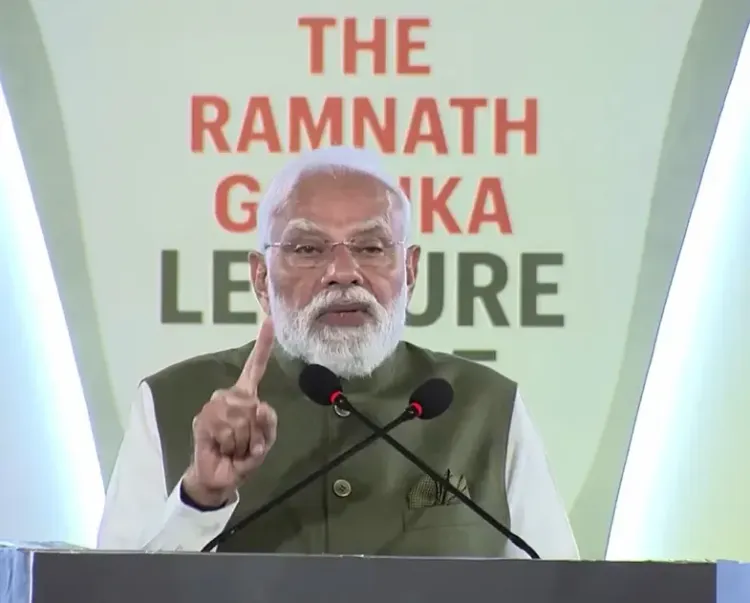
Synopsis
Key Takeaways
- PM Modi calls for a national mission to end Macaulay's legacy.
- He links Congress's actions to the rise of Maoism.
- The emphasis on pride in Indian heritage and languages is paramount.
- Ramnath Goenka's legacy is invoked as a symbol of resistance.
- Critique of the National Education Policy highlights the need for valuing Indian languages.
New Delhi, Nov 17 (NationPress) In a passionate speech at the Ramnath Goenka Lecture during the ‘Excellence in Journalism Awards’, Prime Minister Narendra Modi called upon the nation to rid India of the “slave mentality” instilled by British colonial figure Thomas Babington Macaulay nearly two hundred years ago.
In a broad critique connecting the Congress party's alleged support of Maoists and Urban Naxals to the dismantling of India’s ancient educational framework, PM Modi proclaimed that the next decade will see the definitive end of Macaulay’s influence.
“Almost every major state was once under the sway of Maoist terrorists. Who fostered them? The Congress birthed the Maoists and Urban Naxals who openly rejected Bharat’s Constitution,” PM Modi asserted, noting that “the Maoists of the Muslim League have now transitioned into Congress municipal councillors.”
This statement, made shortly after the NDA’s overwhelming success in Bihar, elicited both astonished gasps and enthusiastic applause from the audience.
Referring to the illustrious legacy of Ramnath Goenka, the Prime Minister praised the founder of ‘Indian Express’ as a champion who resisted British censorship as early as 1835—two decades before the 1857 uprising.
“Ramnath ji proclaimed in his editorial; I would prefer to shut down my newspaper rather than submit to British ideals. That indomitable spirit is essential once again today,” PM Modi expressed.
Central to his address was a powerful denunciation of Macaulay’s 1835 Minute on Education.
“Macaulay aimed to create a class of individuals who are Indian in blood and colour but British in taste, opinions, morals, and intellect. He uprooted our glorious gurukul system—a magnificent tree that harmonized knowledge with skills, culture with pride—and substituted it with a mechanism that produced clerks ashamed of their own heritage,” PM Modi remarked.
PM Modi lamented that even post-Independence, successive administrations continued pursuing foreign models.
“We perpetually looked westward for education, innovation, and language. We were conditioned to view anything ‘imported’ as superior and anything swadeshi as inferior.”
He criticized opponents of the National Education Policy for perpetuating the same outdated conflicts.
“Our stance is not against English; it is against the intentional disregard for Indian languages. In which nation are its own mother tongues treated like orphans?”
The Prime Minister declared a bold national initiative: “By 2035—exactly 200 years after Macaulay’s transgression—India will be entirely liberated from the mindset of servitude. In the coming decade, we will restore pride in our heritage, languages, and knowledge systems. This is my plea to every citizen through the platform of the Indian Express.”
As the audience erupted in applause, PM Modi connected Goenka’s fearless journalism to India’s transformative journey.
“Ramnath ji battled colonial oppression with his pen. Today, we confront mental subjugation through education, innovation, and unwavering self-confidence. The Indian Express has chronicled every chapter of this journey—and the most glorious chapters are yet to unfold.”

